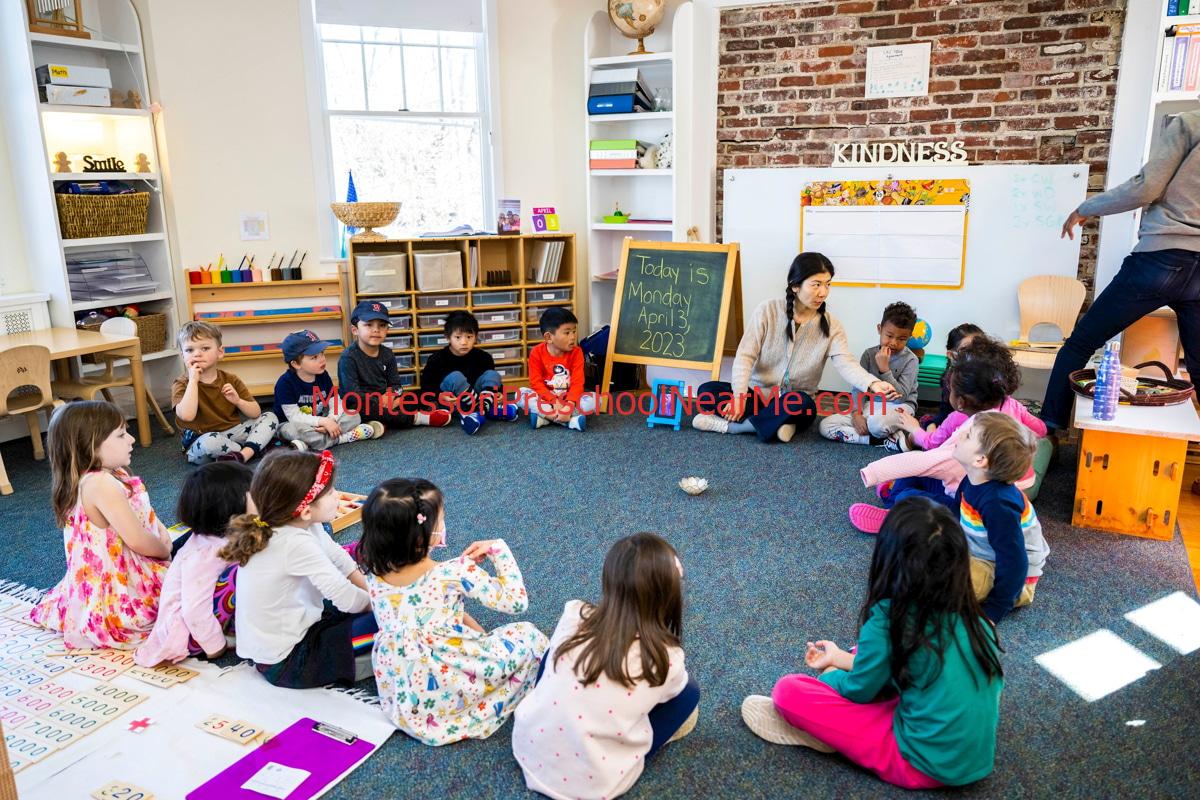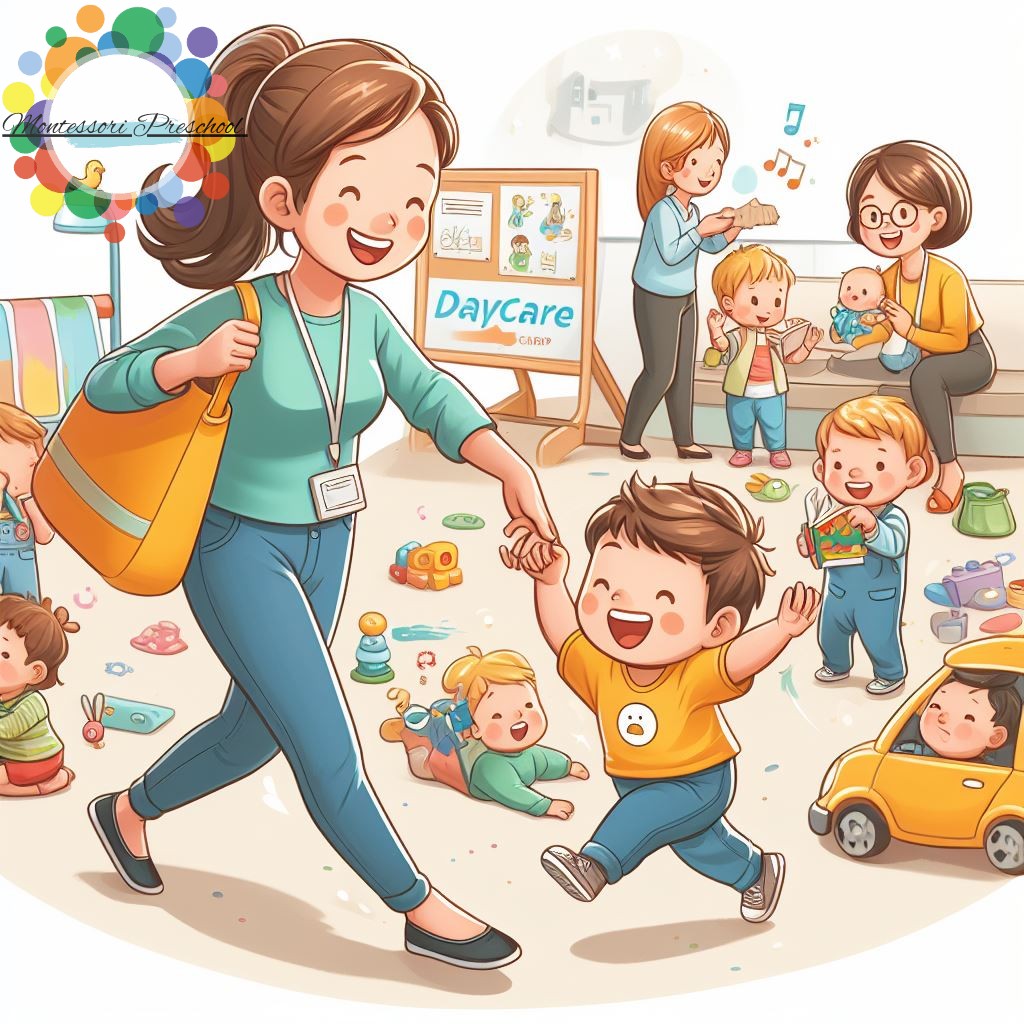
The Montessori method has revolutionized early childhood education, providing a nurturing and stimulating environment for children aged 3-6 years to thrive. In a Casa dei Bambini, or “Children’s House,” trained adults guide young learners through real-life activities, sensorial experiences, and open-ended exploration. This article explores the wonders of Montessori education for children aged 3-6 years, highlighting the comprehensive curriculum and the benefits it offers in unlocking their potential.
The Montessori Method and its Perfect Match for Developmental Stage
The Montessori curriculum is carefully designed to meet the developmental needs of children aged 3-6 years. This stage of development is characterized by rapid growth in physical coordination, language acquisition, and cognitive abilities. The Montessori method recognizes and harnesses these developmental milestones through a holistic approach to education.
Practical Life Activities: Fostering Independence and Social Skills
In Montessori classrooms, practical life activities are an integral part of the curriculum. These activities bridge the gap between home and the classroom, fostering independence and social skills. By engaging in daily tasks such as setting the table, pouring water, or folding clothes, children develop fine motor skills and a sense of responsibility. These activities also promote the desire to participate in daily adult life, instilling a sense of belonging and purpose.
Sensorial Activities: Refining Sensory Perception
The sensorial materials in a Montessori environment provide children with opportunities to refine their sensory perception. Through activities that involve touching, smelling, tasting, and listening, children develop a heightened ability to discriminate and categorize sensory stimuli. These activities lay the foundation for future cognitive development and enhance the child’s overall understanding of the world.
Language Development: From Spoken Language to Written Expression
Language development is a key focus in Montessori classrooms. The curriculum incorporates a wide range of activities that promote the acquisition of language skills. From spoken language exercises to writing and reading activities, children are encouraged to express themselves verbally and in written form. This comprehensive approach to language development instills confidence and prepares children for a lifetime of effective communication.
Mathematics: Engaging Mathematical Activities
Mathematical concepts are introduced to Montessori learners through engaging activities that make abstract concepts tangible. The use of concrete materials, such as counting beads or number rods, helps children grasp fundamental mathematical principles. By engaging in hands-on activities, children develop a deep understanding of numerical concepts, spatial relationships, and problem-solving skills.
Exploring the World: Geography, History, Biology, Science, and More
The Montessori curriculum goes beyond the core subjects of language and mathematics. Children aged 3-6 are exposed to a wide range of subjects, including geography, history, biology, science, music, and the arts. These explorations cultivate a holistic understanding of the world and spark curiosity about various cultures and natural phenomena. Montessori learners develop a love for learning and a thirst for knowledge that extends far beyond their early years.
Cultivating Concentration, Motivation, Self-Discipline, and a Love of Learning
One of the key benefits of Montessori education for children aged 3-6 years is the freedom to choose their own activities. This freedom not only allows children to follow their interests but also cultivates important skills such as concentration, motivation, self-discipline, and a love of learning.
In a Montessori classroom, children have access to a prepared environment filled with intriguing learning materials, art and music materials, plants, animals, and nature activities. These inviting spaces encourage exploration and independent decision-making. As children engage in activities that capture their interest, they develop the ability to concentrate for extended periods and acquire an intrinsic motivation to learn.
Montessori classrooms also provide a structured routine that supports self-discipline. Children learn to respect the work of others, wait for turns, and follow established rules. This fosters a sense of responsibility and social awareness, preparing children for future academic and social success.
Montessori Activities for Children Aged 3 and Beyond
Montessori activities for children aged 3 and beyond are designed to ignite curiosity and creativity in young minds. These activities encompass various areas of development and cater to individual interests and abilities. Let’s explore some engaging Montessori activities that help unlock the potential of children aged 3-6 years.
- Practical Life Activities: From pouring grains to polishing shoes, practical life activities offer children the opportunity to engage in meaningful tasks that mimic real-life situations. These activities develop fine motor skills, hand-eye coordination, concentration, and a sense of order.
- Sensorial Activities: Sensorial materials, such as the pink tower or the knobbed cylinders, allow children to explore and refine their senses. By engaging with materials that vary in size, shape, texture, color, and sound, children develop a heightened awareness of their environment and a keen ability to differentiate between sensory stimuli.
- Language and Literacy Activities: Montessori classrooms provide a rich language environment where children are exposed to spoken language, storytelling, poetry, and vocabulary development. Writing and reading activities, such as sandpaper letters and movable alphabets, enable children to progress from sounding out words to composing sentences and eventually reading independently.
- Mathematical Activities: Montessori mathematical materials, such as the spindle box or the golden bead material, make abstract mathematical concepts concrete. Through hands-on exploration, children develop an understanding of numbers, quantity, operations, and mathematical relationships.
- Creative Arts and Music: Art and music are integrated into the Montessori prepared environment, nurturing self-expression and enhancing exploration. Children engage in activities such as painting, drawing, sculpting, and playing musical instruments, fostering creativity and a deep appreciation for various art forms.
- Science Explorations: Montessori classrooms provide opportunities for children to explore scientific concepts through hands-on experiments and observations. Whether it’s investigating the life cycle of a butterfly or conducting simple chemistry experiments, children develop a curiosity about the natural world and the scientific method.
- Geography and Cultural Studies: Montessori materials, such as continent maps and flags, introduce children to different cultures, countries, and geographical features. By exploring puzzles, maps, and cultural artifacts, children develop a global perspective and a respect for diversity.
Unlock the Potential of Children Ages 3-6 with Montessori Education
Montessori education offers a unique and comprehensive approach to nurturing the potential of children aged 3-6 years. Through a carefully designed curriculum and a prepared environment, Montessori classrooms support the holistic development of young learners. By fostering independence, social skills, sensory perception, language development, mathematical understanding, and a love for learning, Montessori education unlocks the full potential of children during this critical stage of development.
Experience the wonders of Montessori education for children aged 3 and beyond and discover the joy of learning that lasts a lifetime. From practical life activities to sensorial experiences, language development to mathematical explorations, Montessori classrooms provide an enriching environment where children flourish and become active participants in their own education. Embrace the Montessori philosophy and witness the transformation of young minds as they embark on a journey of self-construction and knowledge absorption.



